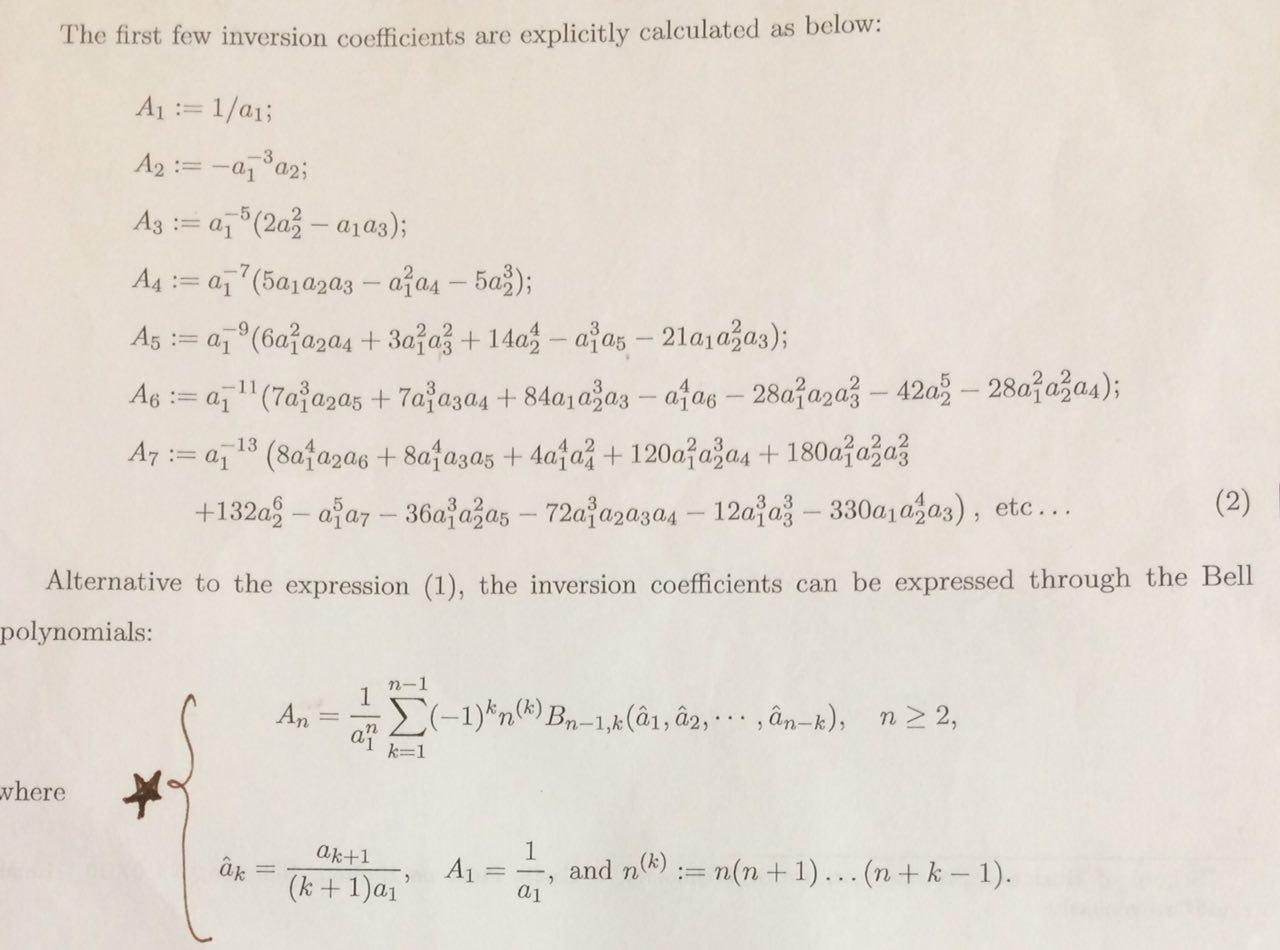I am new to Mathematica. I want to produce the Lagrange inversion coefficients by using Bell polynomials.
In the following image you can see expressions for the first seven coefficients $A_1$ to $A_7$ using Bell Polynomials. There is also a general expression in term of Bell polynomials $B_{n-1,\,k}$
I want to produce coefficients higher than $A_7$. I don't know how many times I should go further; it will depend on how quickly I get convergence to my result.
I believe it shouldn't be hard to produce coefficients higher than $A_7$, but I don't have enough knowledge of Mathematica yet to do myself.

